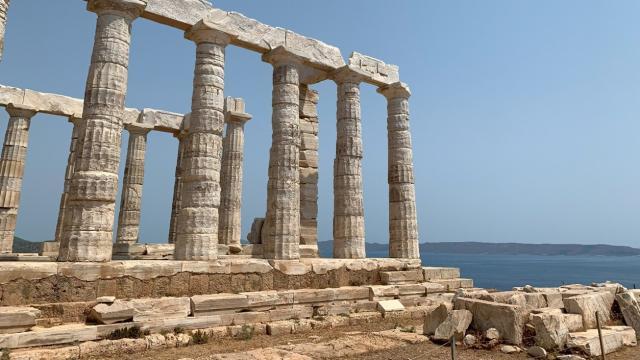
This paper investigates the rhetoric and practice of ritualised friendship in the creation of treaties and alliances during the Atheno-Peloponnesian Wars (431-404 BCE). While modern commentators have shown separate interest in the personal/polis nature of treaties and alliances in Thucydides (e.g. Herman 1990) and the rituals with which alliances and treaties were made (e.g. Burkert 1985; Hunt 2010), the crucial link between the ritual acts and the personal/polis nature of these agreements remains ambiguous. Through rhetorical and philological analysis of treaties and alliances in Thucydides’ History (e.g. Thuc. 1.23; 2.92; 3.52.2; 4.19; 5.18-19) and select epigraphic sources (IG3 53; IG3 83; IG3 118), this paper examines the ways in which the act of taking oaths and pouring libations represented – rhetorically and practically – the personal/polis dynamic between ambassadors. In light of Thucydides’ portrayal of treaty-making as one in which libations are essential compared with the rare mention of libations in the rhetoric of alliance creation, this paper also questions the argument made by Gabriel Herman (1990, 2002) that alliances between Greek poleis were of a personal nature between individuals that simultaneously represented the whole polis. This paper will demonstrate that the rhetoric and practice of ritualised friendship were at once governed by both nomos and circumstance. It will further illustrate that the synonymity between treaties and the act of libations is a rhetorical trope that represents an inseparability between the speech-act of creating treaties and the physical act of pouring libations in Classical Greek minds. This paper will contribute to the advancement of the study of Greek historiography by demonstrating how Thucydides can be consulted productively in conjunction with epigraphic evidence, as few scholars have ventured to do (e.g. Hornblower 1992; Matthaiou 2022).
Speaker:
Edward Armstrong is an historian with a research focus on Classical Greek literature and Thucydides in particular. He teaches at ANU and holds a Research Associateship with the British School at Athens. In his doctoral research at St Andrews, Edward examined methods of characterisation in Thucydides’ History with a focus on the deliberative speeches. Immediately following his PhD, Edward was hosted as the Jacobi Fellow at the Kommission für Alte Geschichte und Epigraphik des Deutschen Archäologischen Instituts.
Select Bibliography
Allgaier, B. (2022). Embedded Inscriptions in Herodotus and Thucydides. Harrassowitz Verlag.
Herman, G. (1990). Treaties and Alliances in the World of Thucydides. Proceedings of the Cambridge Philological Society (Second Series)36, 83-102.
Herman, G. (2002). Ritualised Friendship and the Greek City. Cambridge University Press.
Hornblower, S. (1992). The Religious Dimension to the Peloponnesian War, or, What Thucydides Does Not Tell Us. Harvard Studies in Classical Philology, 94, 169-197.
Hunt, P. (2010). War, Peace, and Alliance in Demosthenes’ Athens. Cambridge University Press.
Matthaiou, A. P. (2022) Pericles: The Direct and Indirect fifth-century Epigraphical Evidence. In Marinatos, N. and Pitt, R. K. (eds.), Thucydides the Athenian. Alexandria Publications.
Taylor, C. (2015). Epigraphic Evidence. In Eidinow, E., and J. Kindt (eds.), The Oxford Handbook of Ancient Greek Religion. Oxford University Press
Location
Speakers
- Dr Edward Armstrong (ANU)
Contact
- Dr Simona Martorana